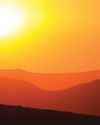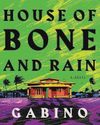
You just finished writing your book. You've sent it off to a handful of readers and are waiting with all the patience of a caffeinated squirrel for that coveted reader feedback. After what feels like eternity, it finally comes. And there you see it. The note that says they didn't connect to your unlikable main character. Intentionally unlikable or not, protagonists who cause the reader to disconnect from the story can doom a manuscript. Reader feedback is a tricky beast, and it's up to the writer to interpret it and decide how to move forward when that feedback isn't positive. Before you hurl your computer out a window, take a moment to breathe and answer a couple questions.
Do you understand the criticism?
Decoding reader feedback can be difficult. "I don't like your main character" can mean a number of things ranging from the character feeling unrelatable all the way to them being a straight-up monster. If the former is the case, you may have an issue of misaligned readership, especially if the feedback is only coming from one source or demographic. Always remember that your readers have their own backgrounds, experiences, and expectations. You want them to be honest, but that doesn't mean that every note requires a rewrite.
If your feedback comes from many sources, including your target readers, however, you might need to dig a little deeper to figure out where the disconnect is so that you can address it in order to increase their investment in the story.
Does your character need to be likable?
この記事は Writer’s Digest の March - April 2024 版に掲載されています。
7 日間の Magzter GOLD 無料トライアルを開始して、何千もの厳選されたプレミアム ストーリー、9,000 以上の雑誌や新聞にアクセスしてください。
すでに購読者です ? サインイン
この記事は Writer’s Digest の March - April 2024 版に掲載されています。
7 日間の Magzter GOLD 無料トライアルを開始して、何千もの厳選されたプレミアム ストーリー、9,000 以上の雑誌や新聞にアクセスしてください。
すでに購読者です? サインイン

Writing for a Warming World - Imagining the overwhelming, the ubiquitous, the world-shattering.
Climate change is one of those topics that can throw novelists—and everyone else—into a fearful and cowering silence. When the earth is losing its familiar shapes and consolations, changing drastically and in unpredictable ways beneath our feet, how can we summon our creative resources to engage in the imaginative world-building required to write a novel that takes on these threats in compelling ways? And how to avoid writing fiction that addresses irreversible climate change without letting our prose get too preachy, overly prescriptive, saturated with despair?

Kids' Author Meg Medina Inspires Readers
WD chats with the National Ambassador of Young People’s Literature.

The Horrors of Grief
Whether hot off the presses or on the shelves for years, a good book is worth talking about.

The Mystery of Growing Up
New York Times-bestselling author Jasmine Warga tackles a new genre with her signature blend of empathy for her readers, agency for her characters, and the belief that art is the great connector.

Education
Even if it's not your thing, you're probably familiar with the term dark academia.

A Do-Over Romance
Karin Patton, the first-place winner of the 24th Annual Writer's Digest Short Short Story Awards, shares a funny story about secondchance love and a brief Q&A.

Everyday Wonder
How to mine awe from the mundane

From Ordinary to Extraordinary
Unveil the hidden beauty in the facts and transform your nonfiction with the power of wonder.

Childhood: Our Touchstone for Wonder
How to get in touch with Little You and create big new work for today.

Agent Roundup
22 agents share details, about what kind of writing will pique their interest and offer tips for querying writers...